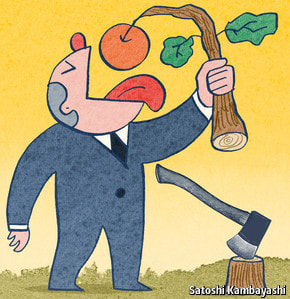 Daniel Thomas, CGS Musician There has been a lot of conversation and consternation among artists and arts producers recently about the impact of Assembly Bill 5. This is the bill that was targeted at companies such as Uber and Lyft to get them to treat their drivers as employees rather than independent contractors. However, the bill has had some unintended consequences, as arts organizations have regularly treated their artists as independent contractors as well (with the rationale that plays or concerts or showings are seasonal and temporary in nature and involve different individuals each time, each with a high degree of creative control over their output, the artists do not fit the traditional definition of an employee). By tightening up the definitions of who qualifies as an independent contractor, many companies are facing a 15%-20% increase in their personnel costs to now cover payroll taxes, workers’ compensation insurance, and other overhead costs. And for many non-profit arts groups whose finances are touch-and-go to begin with, this could be the straw that breaks the camel’s back. Already two Bay Area theatre companies have announced their closure, with AB5 as a stated reason for their shuttering. My theater company faces not-insignificant increase in costs, but we are fortunate that we will be able to scramble and cover these costs for this year, and budget appropriately for following seasons (assuming the bill remains in place, although there are movements about to have it modified or repealed). There has been similar situations in other industries as well - the consequences of this bill have reached far beyond the intentions of the politicians and policymakers. The “law of unintended consequences” can be found throughout the Bible, starting with the decisions of Adam and Eve. We’re taught that everything we say or do has a ripple effect, often far beyond our own vision or perceptions. Some of these things will come back to directly affect us or our loved ones, and some will affect people we may never meet. And each time, we make new decisions or actions based on what has happened, and these will make new ripples. As parents, as teachers, as mentors, and as friends, we try to help each other look at the potential unintended consequences of our decisions, and to recognize that, no matter how fiercely independent we may want to be, that we are all connected through our thoughts, our words, and our deeds. I wonder, though, if we spend enough time on the other side of this: that each action that someone else takes is also influenced by the decisions and actions of people before them. We look at the disempowered and disenfranchised and talk in a lot of “pop psychology” terms – bad or absent parenting, victims of an unfair system, products of their environment – but how often do we look at each individual that we encounter, and how often do we learn their story? When the empowered and privileged, or those whose belief systems differ from ours, do something that we perceive as greedy, or narcissistic, or uncompassionate, what do we do to learn how they came to those decisions, especially when those people fervently believe that they’re doing the “right” thing? It often feels like our society is too vast, and moving too fast, to do anything but paint in broad strokes. The “other side” is depicted as an unknowing, unfamiliar mass of humanity rather than the thousands or millions of individuals, each of whom walked their own path. We try to solve systemic problems with sweeping legislation, rather than drilling down to each industry, or company, or neighborhood, or person. We operate in a binary – “us vs. them” – because it’s just easier. We forget, or ignore, that these are decisions as well, each with their own set of unintended consequences. Right now, it seems the consequences are driving people apart, reinforcing the binary and reducing the opportunity for conversation, collaboration, or compromise. Can we shut out the cacophony of the masses and reach out to the individuals? How can our decision to reach out to even one person with understanding, with compassion, with forgiveness, and with love have consequences for the rest of the world?
0 Comments
Leave a Reply. |
Christ the Good ShepherdVarious editorials, articles, and other items of interest. Archives
June 2024
Categories |
 RSS Feed
RSS Feed

